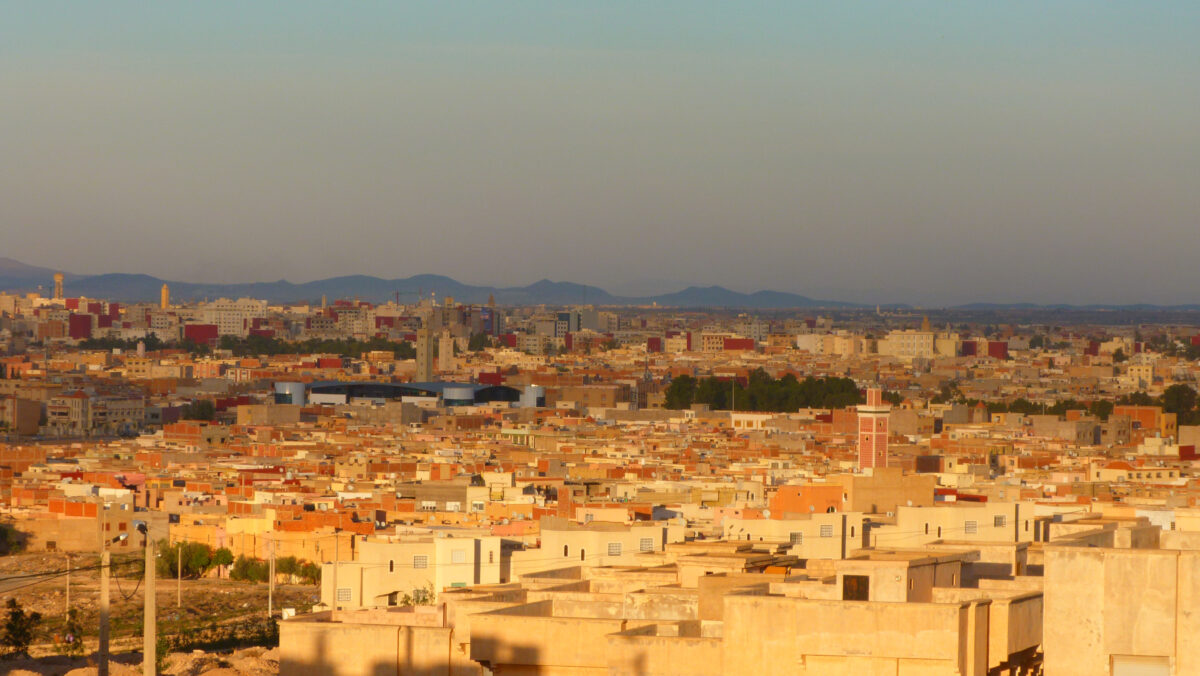New research from Morocco indicates that integrating locally produced, bio-based construction materials with PV panels could contribute to achieving carbon neutrality in rural homes. The scientists said that the thermal properties of bio-based walls were recently enhanced by the construction industry, and prices remain at “ultra-low” levels.
“The research emphasizes achieving significant energy savings and improving indoor comfort through the integration of photovoltaic systems and bio-based materials,” researcher Sara El Hassani told pv magazine. “We used a combination of passive and active strategies – passive approaches include the use of local eco-materials for insulation, while active approaches involve the introduction of renewable energy techniques.”
They used locally produced Alfa fiber as adobes and local clayey soil as a binder, mixed in a weight ratio of 8%. They also created a comparison sample using only clayey soil. These mixtures were then pressed into a mold to create experimental bricks for analysis. After testing the bricks, they created and simulated a thermal profile for each of them in a case study.
“The building consists of two bedrooms and one living room, with a total surface area of 40 m2,” the academics explained. “To be representative, the location of the building is presumed to be in Oujda City and occupied by three persons.”
The researchers improved the thermal resistance of a 45 cm-thick wall from 0.549 m2K/W in the clayey soil-only bricks to 1.125 m2K/W in the combined mixture. They also increased the time lag of the building envelope from 18.5 hours to 23.2 hours. Time lag measures how quickly a material responds to temperature changes.
In simulated semi-arid climate conditions in eastern Morocco, the bio-material demonstrated intelligent behavior, as reported by the research team.
“For example, on the coldest day, the bio-sourced wall increases the indoor temperature by up to 1 C, which could be very effective in the energy consumption of buildings during winter seasons,” the researchers said. “Furthermore, on the hottest day, the same mixture has led to a reduction of up to 2 C.”
Overall, the bio-based walls reduced simulated peak heating loads by around 24.3%, and decreased cooling loads by about 26.7%.
“All of these findings support the use of plant fibers as a sustainable practice in developing local and efficient adobes for improving passive heating and cooling in rural arid and semi-arid regions,” the scientists said.
The researchers proceeded to determine the required PV system for the case study house based on the heating loads. With optimization software, they identified the most cost-effective system, featuring 6.01 kW of capacity.
This system's total cost, including capital, operating, and replacement costs minus a salvage value at the end of its 25-year lifespan, amounted to $11,560. With these values, the system achieved an LCOE of $0.218/kWh.
“These findings indicated that combining available solar energy with locally produced bio-based construction materials could be a viable approach for achieving carbon neutrality and building energy-efficient ultra-low-cost rural housing,” the researchers said.
Their study, “Towards rural net-zero energy buildings through integration of photovoltaic systems within bio-based earth houses: Case study in Eastern Morocco,” was recently published at Solar Energy. The research group includes scientists from Mohammed 1st University and the Green Energy Park. They said they will try to develop a standalone PV system within a bio-based building prototype in the future.
This content is protected by copyright and may not be reused. If you want to cooperate with us and would like to reuse some of our content, please contact: editors@pv-magazine.com.



By submitting this form you agree to pv magazine using your data for the purposes of publishing your comment.
Your personal data will only be disclosed or otherwise transmitted to third parties for the purposes of spam filtering or if this is necessary for technical maintenance of the website. Any other transfer to third parties will not take place unless this is justified on the basis of applicable data protection regulations or if pv magazine is legally obliged to do so.
You may revoke this consent at any time with effect for the future, in which case your personal data will be deleted immediately. Otherwise, your data will be deleted if pv magazine has processed your request or the purpose of data storage is fulfilled.
Further information on data privacy can be found in our Data Protection Policy.